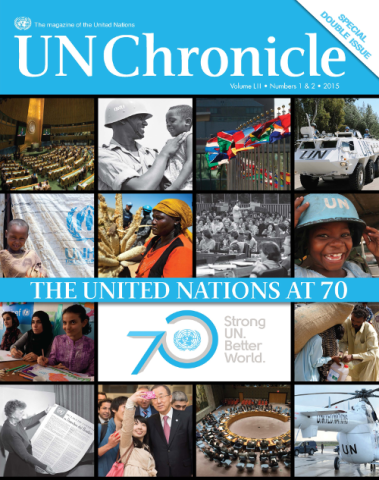
This special double issue of the UN Chronicle celebrates the 70th anniversary of the establishment of the United Nations under the theme “Strong UN. Better World.” A select group of eminent contributors highlight key moments and achievements, challenges and obstacles and the role played by the United Nations during the past 70 years. They also reflect upon the future and what would make the Organization stronger and better able to serve humanity.










